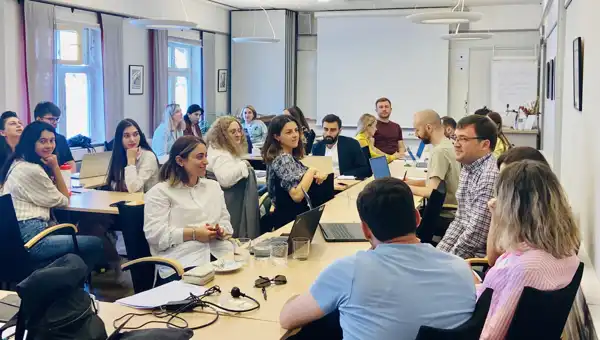Cooperation beyond Borders - Transnational Public Administration and Organizing (Baltic Sea Region/EU Eastern Partnership)
This module is funded by the Swedish Institute through the SI Academy for Young Professionals. The training programme aims to build new networks, knowledge and practices for increased transparency, efficiency and resilience in public administration among young professionals from different sectors in the Baltic Sea Region and Eastern partnership countries.
Deadline for applications: 5 April 2024, 23.59 CET
Swedish Institute Academy for Young Professionals (SAYP)
Welcome to the SAYP module in “Cooperation beyond Borders – Transnational Public Administration and Organizing” (TPAO), a training programme that provides the knowledge and skills necessary to excel in a context in which governance occurs at various levels and includes public administration, corporations, and civil society organisations across various national contexts.
This module is offered by the Academy of Public Administration at Södertörn University (Sweden) and is open to young professionals who already work transnationally or who plan to introduce a transnational dimension into their work.
The content and structure of the module is tailor-made to navigate the challenges and opportunities of policymaking and administration that transnational issues require. The module introduces participants to research and various TPAO practices from the Baltic Sea region and Eastern Partnership countries, training them to use this knowledge to examine their organisations in the transnational dimension of a relevant policy field, as well as initiating or developing their own transnational working skills.
Alumni about the module
“The TPAO module is engaging and well-structured. It provides knowledge and practical skills through interesting assignments in working groups.”
“We would totally recommend the course. Definitely read the literature in advance! Participate actively in the discussions. Enjoy :)”
“Definitely join it and try to get as much fun as you can from this project!”
“Apply! It will be beneficial for your professional development, it will help you to understand the concept of TPA and how we as young professionals can be more involved and better in TPA.”
.webp)




